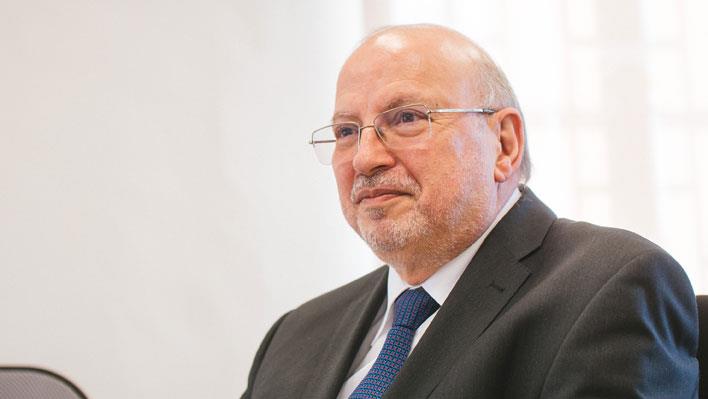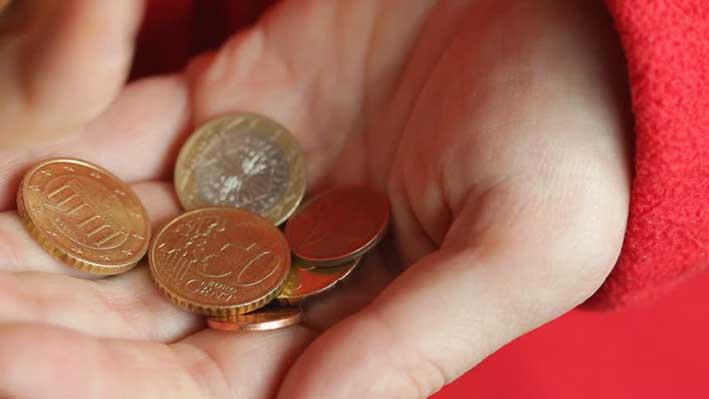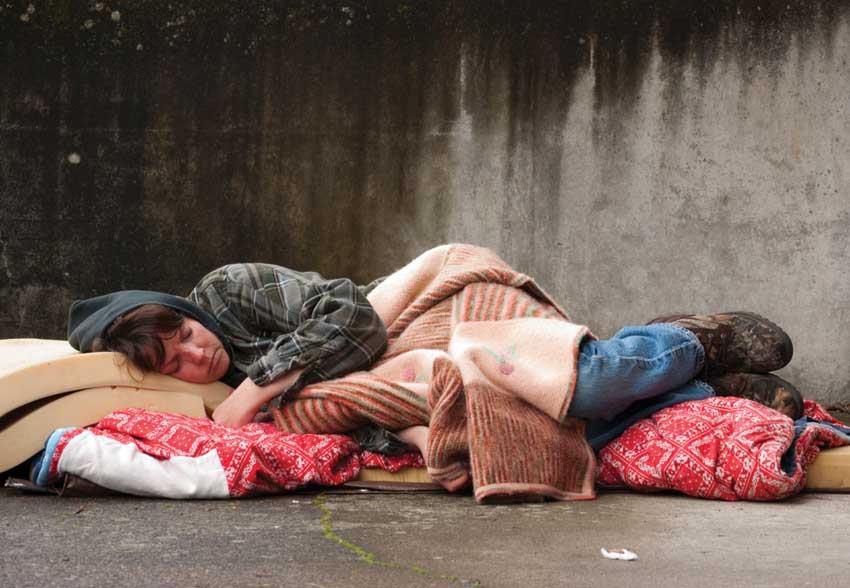Can you explain the concept behind the Voluntary Solidarity Fund?
“The concept first started when I was working on a Paper for a conference to be held in the Vatican. The subject was the increasing inequality in income evident in advanced economies, which leads to a build-up of tension between those earning more and those struggling to earn anything at all. The International Monetary Fund (IMF) has also clearly indicated that this is a problem, which prompts my question: what can the individual do?
The concept of the VSF is that the individual participates in voluntary contributions to the fund, through financial or different talents, to counter socio-economic decay and help people struggling to participate in society and avoid falling behind once more.”
Where are the funds coming from and how will you be distributing them?
We will encourage people to contribute. In the paper I prepared I, indicated that those earning above €100,000 a year would be encouraged to give, say, one per cent a year. Those earning less would obviously give less, but those earning €200,000 would, of course, be encouraged to give more. There are many means by which the funds can be distributed: such as through working with charities, or lending people funds to set up their own businesses. There are many different routes that we can provide to help these individuals get back on their feet and contribute to society once more. As individuals, we need to take the issue of socio-economic decay into our own hands. For example, people coming out of prison need not only immediate support but also support and help to get back on feet again in society.

What makes VSF different from charities such as the Malta Community Chest Fund and Caritas?
VSF is not a charity, as such, but more about focusing on the moral obligation to help, and this is what we are trying to tap into. Charities are sometimes associated with the concept of ‘emergency aid’, but VSF is trying to go beyond this concept so that, with the help and talent of others, we can help people to become more independent.
Caritas and the Malta Community Chest Fund mostly provide help at the first level of support, whereas the VSF is interested in moving to the next level: giving individuals the means and opportunities so they are able to take care of themselves and stand on their own two feet. We do not want to compete with other charities but our aim is that we will encourage other people to contribute more: I feel that there is a gap in the support that can be provided.

So VSF will be helping individuals and also charities such as Caritas? So will people not feel that they do not need to donate to VSF as they are already donating to other charities? How will they distinguish between the two?
Again, this is not a traditional charity, as we are not providing the first line of support, but we provide the means for individuals to get back on their feet, to improve their capability to earn a living. Which gives rise to another question: are there enough organisations in society that do this? Probably not – and I think we need to provide more resources for such funds and organisations.
Does this mean that people will donate less to other charities? I hope not, because providing the basic support is extremely important. But beyond that basic support is the need for knowledgeable intervention: a means to improve the individual’s situation. I believe that not enough is being done to help people who find themselves in certain situations (such as ex-prisoners or former drug-users) to participate in society and use their talents and capabilities. I certainly hope it does not reduce donations to charities, which is why we are approaching individuals and businesses, asking if they can help cater for a need that is probably not being given enough attention or resources.

You mentioned that VSF may also make loans for the setting-up of small businesses. Can you explain how this would work and how someone would become eligible for such funding?
This concept has brought about a bit of controversy and we must be careful that it is not abused. VSF can also provide micro loans through partner financial institutions for the establishment of small businesses. This is for individuals who are usually stuck in a certain environment and do not have the funding to set up their own business, so we are there to give help. We will provide them with interest-free funds and if the business is successful, we will expect the funds to be re-paid so that we can help others to set up their own business.
You speak about the imbalance found in advanced economies. Where do you believe Malta stands as an advanced economy but also having a trend towards socio-economic decay?
Imbalance is not just found in Malta, as VSF is an international organisation, yet having a high level of economic activity results in a number of people benefitting from it, but does this mean that everyone is much better off. The issue of imbalance is complex and varies from one country to another. In Malta, for example, people dealing in property have definitely benefitted, unlike those who do not have property to sell or rent, but are struggling to maintain the increasing amount of rent that they have to pay.
In Malta we have a higher level of school drop-outs compared to the EU average, and many people who do not get any form of education will fall through the cracks of society – and then what happens to these people? VSF can provide them with some kind of support or mentor them.
Of course there are numerous ways in which the government can help, but I do not believe that this is enough, which is why the Fund reflects on the Parable of the Talents: about using your money to help others, rather than hiding it in the ground to use for your own purposes.

When you were carrying out research in respect of setting up this fund, did you notice an age difference between those who suffer such socio-economic issues and those who do not?
Socio-economic issues affect all ages across the board. The younger generation might suffer if their parents are going through a separation and they are left in a more vulnerable state which could affect their future. People might be struggling to find a productive and satisfying job that not only provides for but also improves their quality of life. It is also a question of knowledge: those with a higher level of knowledge earn higher wages and have better opportunities whereas those who do not have the means of obtaining such knowledge struggle to earn a living in society. We also find an issue where pensioners are concerned, in that most of them could make a more positive contribution to society if they were given the opportunity and this would also enhance their quality of life after retirement.
Speaking as an economist, what would you say would be the next step to reduce such inequality and growing tension in Malta?
Without any doubt, the backbone of an economy is the education system. Society and education have become more complex today and the individuals require a higher level of knowledge compared to just 20 years ago. There is no doubt that there is a link between those who are somehow falling behind in society and their level of knowledge and capacity to participate in society. Sometimes, these people also struggle to obtain the least qualified jobs as these are also becoming scarcer due to increased competition and the impact of globalisation. There must be support for those individuals to improve their lives and to give them the capacity to do so.
In the end, the whole country would benefit from a more productive workforce and would therefore contribute to the common good. When a person helps others, there is a sense of satisfaction and there are various ways of helping – directly or indirectly. We are currently facing a situation in which many people are struggling, despite the fact that there is the capacity to help and have a positive impact on the quality of life for future generations. Therefore, it is our moral obligation to use our talents to help one another for the benefit of a more sustainable economy and a better future.